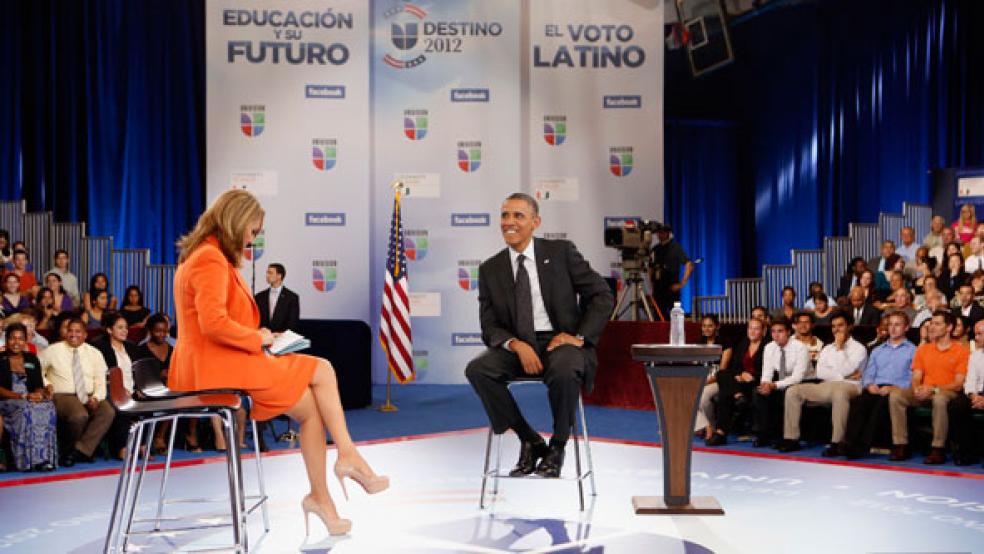Talk about a broadcaster being in the right place at the right time.
What else can you conclude about a television network whose audience is growing dramatically in both sheer numbers and influence on American life, and is expected to increase in both categories in coming years?
This is where television network Univision, which has the largest Spanish-language TV audience in the world according to Nielsen ratings, is positioned in 2013.
Ever-ambitious Univision is set to become an even greater force in the United States, on the wings of an historic joint venture with ABC News as the quality of its broadcasting advances.
Throughout the past few years, Univision has been mentioned in the same breath with America’s five leading English-language television networks. It has surpassed the CW and even been known to top NBC in some of its weekly performances.
RELATED: How NBC Became TV's 'Biggest Loser'
Univision's growth comes as the surging Latino-American population is flexing its collective muscle in everything from U.S. national politics to mobile computing. The Republican Party, eager to find a new telegenic speaker to serve as the face of its beaten-down party, has thrust Florida Senator Marco Rubio, still only 41 years old, into several high-profile assignments. Rubio shrewdly describes his Latino origins during these star-making photo opportunities, and is now often mentioned on Sunday morning political talk shows as a likely presidential candidate in 2016.
Rubio is the recipient of the same kinds of cultural and societal movements that are helping Univision, which clearly has demographics on its side in the 21st century. The U.S. is riding a cultural wave that is taking shape in every conceivable consumer trend. As the Pew Research Hispanic Center pointed out earlier this month, for example, "the digital divide between Latinos and whites has diminished significantly in the past three years."
From 2009 to 2012, the share of Latinos online rose to 78 percent from 64 percent compared with a jump among whites to 87 percent from 80 percent. The survey also revealed that Latinos employ various social network sites at similar — and sometimes higher — rates than other American groups.
American television has noticed Univision's rise. Last month, Univision and ABC News, a unit of the powerful Walt Disney Co., formalized plans to create a 24-hour news and entertainment channel called, appropriately, "Fusion." The new venture will have distribution arrangements in at least 20 million homes. Fusion will be rolled out late this summer, as the first cable entity intended to target English-speaking Latinos, who could locate entertainment and news on other channels.
"Its reception will test whether second-generation Latinos want to watch television programming specifically for them," The New York Times noted. "The 50-50 jointly owned channel underscores the growing influence of a booming population over media companies, marketers and politicians."
In 2010, 50.5 million Hispanics lived in the United States, an increase from 35.3 million only a decade before, according to the 2010 census. That figure is expected to explode by 167 percent by 2050, compared with a projected 42 percent growth rate for the entire United States population.
It's no coincidence that Latinos voted in record numbers in the 2012 presidential election and played a substantial role in Barack Obama's victory over Mitt Romney.
Small wonder that Univision finds itself in the sweet spot of broadcasting in the United States.






